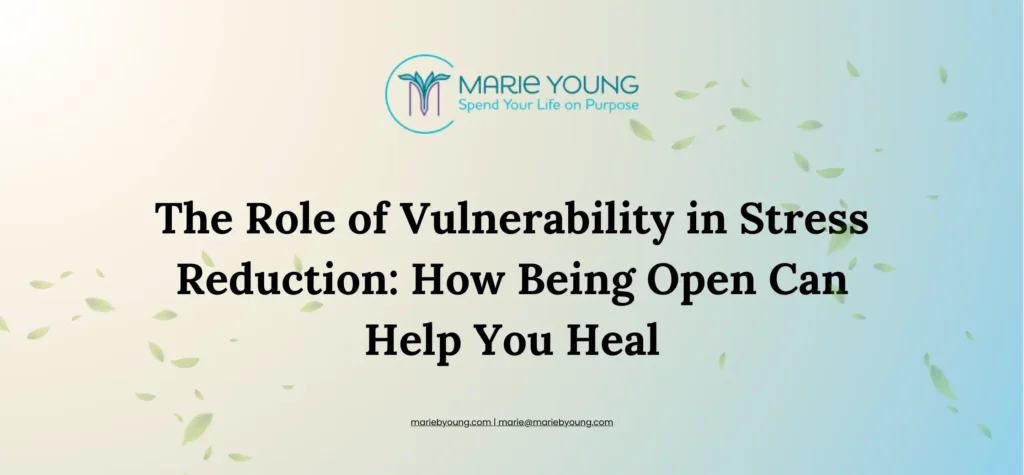Introduction
Vulnerability is often seen as a weakness, but in reality, it can be a powerful tool for stress reduction and healing. Being open about your feelings and experiences allows for deeper connections and emotional release. In this blog, we’ll explore the role of vulnerability in stress reduction and how embracing it can help you heal.
Understanding Vulnerability
What is Vulnerability?
Vulnerability involves being open and honest about your feelings, experiences, and fears. It requires courage and the willingness to take emotional risks.
The Power of Vulnerability
Embracing vulnerability allows you to connect with others on a deeper level, fostering trust and empathy. It also helps to release pent-up emotions, reducing stress and promoting healing.
Benefits of Vulnerability for Stress Reduction
1. Emotional Release
Expressing your true feelings can provide a sense of relief and emotional release. Holding in emotions can lead to increased stress and anxiety.
2. Building Connections
Being open and vulnerable helps to build stronger connections with others. These connections provide support and understanding, which are crucial for stress management.
3. Enhancing Self-Awareness
Vulnerability encourages self-reflection and self-awareness. Understanding your emotions and triggers can help you manage stress more effectively.
4. Fostering Resilience
Embracing vulnerability helps to build resilience by allowing you to face and overcome challenges. It teaches you to cope with difficult emotions and situations.
5. Promoting Authenticity
Being vulnerable encourages authenticity and honesty. Living authentically reduces the pressure to hide your true self, leading to a more relaxed and stress-free life.
Practical Tips for Embracing Vulnerability
1. Practice Self-Compassion
Be kind and compassionate towards yourself. Recognize that vulnerability is a sign of strength, not weakness.
Self-Compassion Exercise:
- Acknowledge your feelings without judgment
- Treat yourself with the same kindness you would offer a friend
- Remind yourself that it’s okay to be imperfect
2. Share Your Feelings
Open up to a trusted friend, family member, or coach about your feelings and experiences. Sharing your emotions can provide a sense of relief and connection.
Ways to Share:
- Have a heart-to-heart conversation
- Write a letter or journal entry
- Seek support from a stress management coach
3. Set Boundaries
While vulnerability is important, it’s also crucial to set boundaries. Share your feelings with people who are supportive and understanding.
Boundary-Setting Tips:
- Identify your comfort level with sharing
- Choose safe and supportive environments
- Communicate your boundaries clearly
4. Reflect on Your Experiences
Take time to reflect on your experiences of vulnerability. Consider how being open has affected your stress levels and relationships.
Reflection Exercise:
- Write about a time when you were vulnerable
- Reflect on how it felt and what you learned
- Identify any positive changes that resulted from being open




